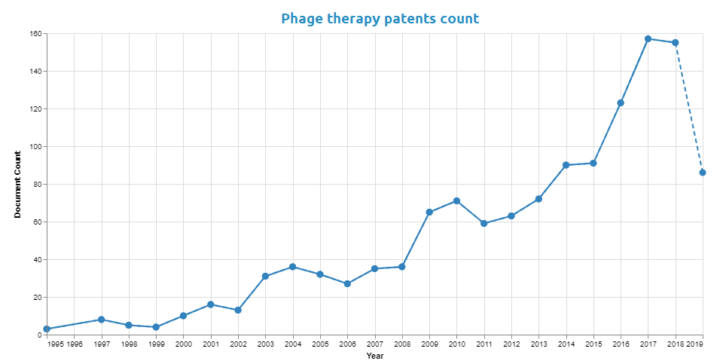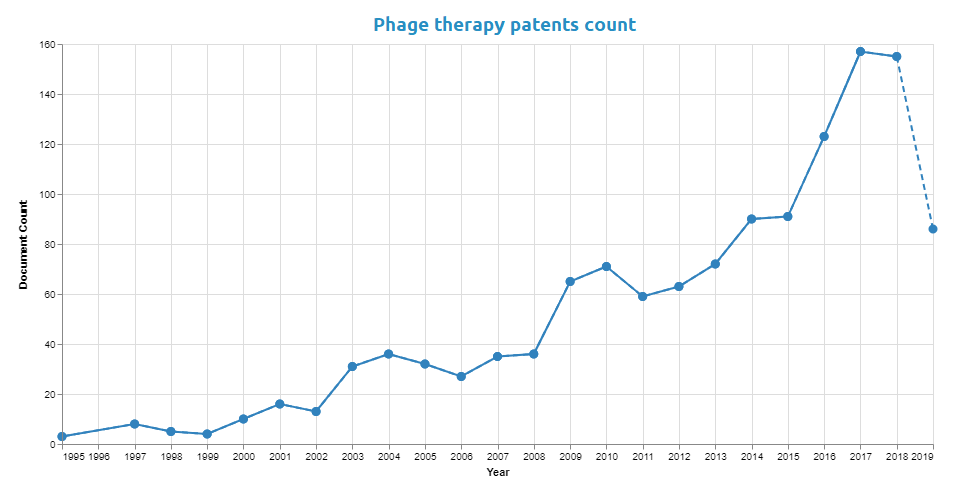Recently, at Viromii, we have been working on a really interesting project regarding phage therapy, a promising area that can help to overcome the problem of multiresistant bacteria. We found the topic exciting, and we want to share some of our insights.
Phage therapy, or bacteriophage therapy, consists of using phages to treat bacterial infections. Before the antibiotic era, phages were used to treat infections, usually, a cocktail of phages was administered to patients suffering from a bacterial infection. This was used because phages are super-specific, a phage recognizes and infects a specific strain or even sub-type of bacteria, by introducing its genome inside it. Then, this genome uses the bacteria replication mechanism to generate a new virus, which from inside destroys the bacteria through the secretion of lysines, also called endolysins.
After antibiotics were discovered and successfully used as antimicrobial agents, the use of phages as therapeutics was abandoned in many parts of the globe, although in East Europe or Russia its use has somehow continued. The reason why phages were abandoned was that antibiotics have a wide spectrum of activity and the same antibiotic could be used to kill a great number of different bacteria. Therefore, with antibiotics there is no need to identify the pathogen to initiate the treatment; instead, with phages, the specificity obligates to either identify the pathogen and then administer the specific phage that will recognize it or to use a cocktail of thousands of different phages, which is not optimal at all. The use of a phage cocktail can have a positive effect but does not assure it, in some cases it can turn to be a problem. Moreover, large-scale production and purification methods were easier to design for antibiotics than for phages, it seemed obvious that antibiotics were the choice.
However, the problem of multiresistant bacteria has put phages in the scene again. The inconvenience associated with specificity also has an advantage in this sense, as the fact of only recognizing and targeting a specific type of bacteria minimizes the possibility of creating multiresistant bacteria or affecting the “good” microbioma. This, along with the advancements in high-throughput sequencing technologies and bioinformatics is encouraging companies to investigate the possibility of using phages as therapeutics. The market potential is really big, in 2017 the global antibiotic market reached 42.000 million $US and it is expected to reach 65.000 million $US by 2026; if phages become a real alternative they can take part of this market and the first companies who develop efficient solutions, screening methods, and large-scale production, will gain a favourable position and get a big piece of the cake.
The race has started. Since 2000, the patent activity in the field has increased, as well as scientific publications. A quick view to patents and scholar publications shows how the importance of phage therapy has increased exponentially, and it seems it will continue.
Looking at patenting activity, we could identify many companies, among them here we list some of the most interesting ones are:
- Intralytix: discovery, production and marketing of bacteriophage-based products to control bacterial pathogens in environmental, food processing, and medical settings
- Phico Therapeutics: developed a new class of antibacterial agent, a platform technology called SASPject, disabled bacterial viruses.
- Phermecydes Pharma: developing precision phage therapy to treat bacterial infections
At Viromii, we are keeping track of the field. Hopefully soon, we will see commercial therapies based on phages in the market, saving lives while avoiding the creation of multiresistant bacteria. There are still many advancements to be done, but companies are working hard and capital is being invested, so it is a matter of time until these therapies reach the market.
If you want to know more about this, or related areas, please feel free to reach out as we are more than willing to talk with you!
Sources:


